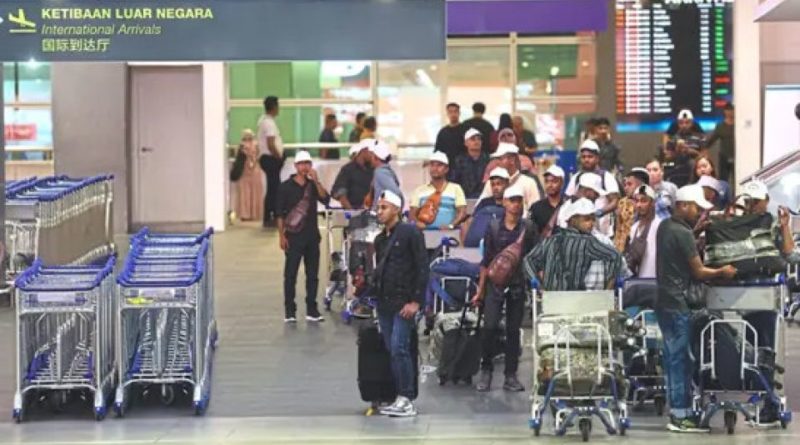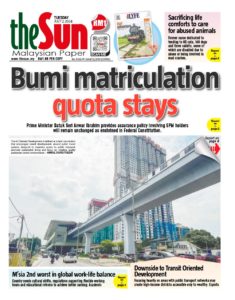ASEAN HEADLINE-LABOR | Foreign workers in Malaysia to receive extra protection
(ANN/THE STAR) – From July 1, foreign workers in Malaysia will be eligible for benefits under the Social Security Organisation’s (Socso) Invalidity Scheme, including 24-hour protection and funeral repatriation. This initiative, announced by Human Resources Minister Steven Sim in May, aims to enhance the protection of foreigners, including expatriates and domestic workers, employed in Malaysia.
This development will result in additional costs for both foreign workers and employers, with industry experts estimating that the expenses for employers alone could exceed MYR140 million annually.
Socso Chief Executive Officer Datuk Seri Dr Mohammed Azman Aziz Mohammed emphasized the importance of viewing these contributions as “investments rather than burdens or extra costs.”
“These contributions provide essential protection and benefits for workers, ensuring their well-being and security in times of need. Investing in these schemes helps create a safer and more secure working environment, ultimately benefiting both workers and employers,” he told The Star.
Prior to this extension, Socso had been reimbursing up to MYR4,500 for the cost of funeral repatriation for non-employment related deaths as part of its corporate social responsibility. With foreign workers now covered under the Invalidity Scheme, this cost is included in the scheme’s benefits. Dr Mohammed Azman noted that this extension aligns with the government’s efforts to meet international labour standards.
In May, Minister Sim mentioned that the decision would enable Socso to save approximately MYR25.38 million annually in expenses for repatriating the bodies of foreign workers to their home countries.
Dr Mohammed Azman also highlighted that the 24-hour protection would complement the existing Employment Injury Scheme, which only covers work-related injuries.
“The coverage is designed to ensure the welfare of foreign workers who suffer from invalidity and who meet the minimum contribution requirement of 24 months to receive monthly Invalidity Pension benefits for themselves or Survivor’s Pension for their dependants,” he added.
He stressed that the contribution shares to Socso for the scheme by both employers and foreign workers “are mandatory.” Additionally, employers can still enroll their foreign workers under private insurance if they choose to or as required by other authorities, such as the Health Insurance Scheme for Foreign Workers under the Health Ministry.
Malaysian Employers Federation President Datuk Dr Syed Hussain Syed Husman stated that the move would improve Malaysia’s standing in the international community regarding the treatment of migrant workers.
“The differences in Socso coverage for local and foreign workers have led to criticisms of discriminatory practices by international organisations against Malaysia,” he said, welcoming the move despite the additional costs.
The Federation of Malaysian Manufacturers noted that the move would result in a 0.5 per cent increase in employees’ monthly wages for employers. Its president, Tan Sri Soh Thian Lai, explained that based on the 1.6 million migrant workers earning a minimum wage of MYR1,500, this would amount to approximately MYR144 million in additional annual costs.
“The move would raise the employer’s Socso contribution to 1.75 per cent (from 1.25 per cent previously under the Employment Injury Scheme) of employees’ monthly wages. Workers will incur an extra 0.5 per cent contribution from their monthly wages,” he said.
Soh suggested that the government review other mandated insurance coverage for migrant workers to prevent duplication.
“Overall, while the extension is a progressive move towards inclusive social protection, it also presents new challenges for businesses that will need to adapt to the additional financial responsibilities, including reassessing their reliance on foreign workers given the increasing cost and obligations,” he added.



 Memento Maxima Digital Marketing
Memento Maxima Digital Marketing







